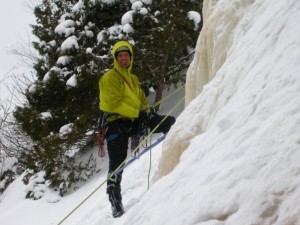Jordan Radford is a young man born and raised in the Petawawa area, who not only recently graduated from our Business program, but he also became an author this year. At 19 years of age, Radford managed to find the time to write his digital book, What You Need to Become Successful, all while completing a challenging compressed diploma program.
This book was written with young people, like Radford, in mind. It offers advice and guidance on what he sees as the key characteristics necessary to become successful:
- Work ethic
- Drive
- Patience
- Passion
- Communication
- Planning
Entrepreneurship and leadership are at Radford’s core, using his background as a hockey coach, plus, his most recent experience as a personal trainer, to lay out a framework that anyone can use to help focus their ability to be successful.
Once Radford decided to write his book, he quickly discovered that self-publishing a digital book was the best way to get his book out there in the world. This simple discovery is a result of a characteristic that Radford touches on in his book – drive. Drive can be a powerful attribute to have that enables you to set a goal and work towards that goal step-by-step.
While many of Radford’s supporter have acknowledged that he is very young to have already accomplished such a goal, they also recognize that his advice is very relatable and practical.
Our Business program certainly helped Radford to work towards his writing goal with courses like Brand Creation for a Digital World to help develop the skills necessary to assess, create and deliver digital media content for online marketing and branding purposes and Communication Skills for Business to help develop his writing style. Radford offers, “You can take work ethic, drive, and passion – those attributes – and put those into your everyday life.”
It seems like nothing can hold this young man back and we wouldn’t be surprised to if Radford published another book in the near future building on what he continues to learn each day. Radford’s message for his readers, “Anything is possible.” Powerful words for everyone to remember each day.



 In recent weeks there have been several great examples of Pembroke Campus alumni showcasing their talent on the world stage.
In recent weeks there have been several great examples of Pembroke Campus alumni showcasing their talent on the world stage. 
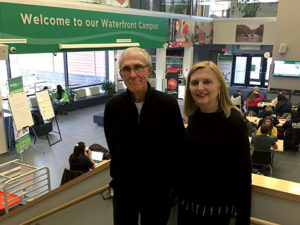
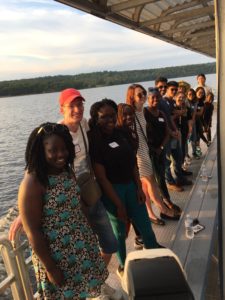
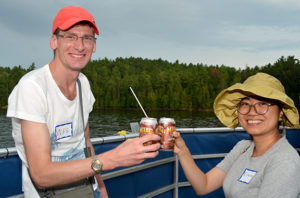 this learning experience by sharing their own culture with the college community. It’s already happening through the newly created African Students’ Alliance, a group of African students who have introduced Canadian students to African foods, music, and celebrations.
this learning experience by sharing their own culture with the college community. It’s already happening through the newly created African Students’ Alliance, a group of African students who have introduced Canadian students to African foods, music, and celebrations.  Regional college campuses located in smaller rural communities such as the Pembroke Waterfront Campus can play a major leadership role. As these campuses attract more students of culturally diverse backgrounds they create more welcoming communities for new Canadians. A great example is the recent establishment of an
Regional college campuses located in smaller rural communities such as the Pembroke Waterfront Campus can play a major leadership role. As these campuses attract more students of culturally diverse backgrounds they create more welcoming communities for new Canadians. A great example is the recent establishment of an 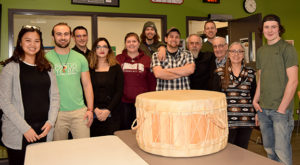 The Campus wants to be leaders in this effort. Case in point is the celebration of Indigenous culture that has been taking place in the month of March. Powerful learning is taking place as the college embraces the recommendations of the
The Campus wants to be leaders in this effort. Case in point is the celebration of Indigenous culture that has been taking place in the month of March. Powerful learning is taking place as the college embraces the recommendations of the 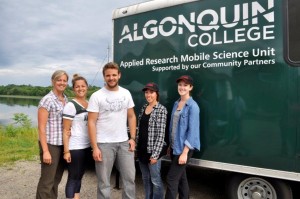
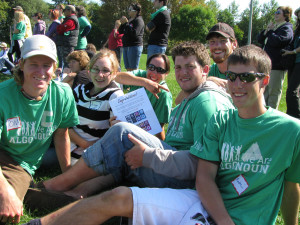

 Doctor Mike Condra will present on Mental Health in the Workplace. Dr. Condra worked extensively in health care and post-secondary education for more than 30 years and co-developed training workshops in crisis intervention skills, training more than 5,000 people. His workshop will focus on the misconceptions of mental health in the workplace and how this impacts the work environment.
Doctor Mike Condra will present on Mental Health in the Workplace. Dr. Condra worked extensively in health care and post-secondary education for more than 30 years and co-developed training workshops in crisis intervention skills, training more than 5,000 people. His workshop will focus on the misconceptions of mental health in the workplace and how this impacts the work environment.
 Every company is looking for an advantage over its competition. Doctor Judy Laws’ workshop on Sparking Innovation to Unlock Your Organization’s Full Potential will introduce participants to new concepts to create a culture of creativity and entrepreneurialism. The College’s entrepreneur-in-resident, Chéla Breckon, will build on this session with a workshop entitled, Leading with Vision, Mission and Purpose, a how-to guide to strategic planning for organizations and businesses.
Every company is looking for an advantage over its competition. Doctor Judy Laws’ workshop on Sparking Innovation to Unlock Your Organization’s Full Potential will introduce participants to new concepts to create a culture of creativity and entrepreneurialism. The College’s entrepreneur-in-resident, Chéla Breckon, will build on this session with a workshop entitled, Leading with Vision, Mission and Purpose, a how-to guide to strategic planning for organizations and businesses. The final workshop focuses on marrying events and marketing. Led by entrepreneur, Katie Tollis-Flabbi, Creative Event Marketing Strategies is focused on small businesses who have to balance their budget with the need to promote their products and services.
The final workshop focuses on marrying events and marketing. Led by entrepreneur, Katie Tollis-Flabbi, Creative Event Marketing Strategies is focused on small businesses who have to balance their budget with the need to promote their products and services.